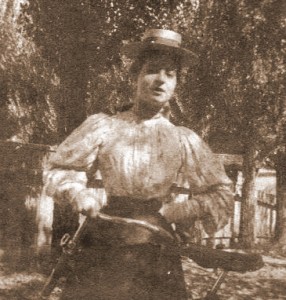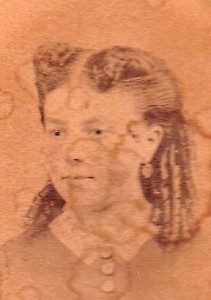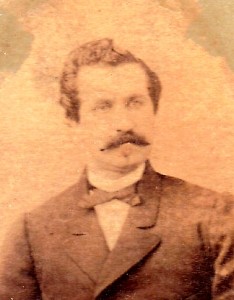Oma Rose
It had nothing to do with her looks. Everyone thought her a beauty but already in her early twenties, Rose qualified as an ‘old maid.’ Her three older sisters were married by now.
Rose was born in 1875, the fifth child of eight. While she and her sister Fannie excelled at math, all the children did well in school. Good breeding required immaculate appearances as well as good manners, and their mother saw to that.
Her father Pepi Steler was born in Austria. Anti-Semitism blanketed the land leaving few opportunities for Jews to earn a descent living. Thus, while still a youth, he immigrated to the United States. He settled in San Francisco, began his own jewelry business, and applied for citizenship which was granted in 1861. Pepi was twenty seven years old.
He met Esther Levy, a lovely German girl, and charmed by her intelligence, wit and good grace, fell in love with her. They married on March 3rd, 1867. Nine months later, Tillie was born.
The babies came every two year after that, first Henry and then Mamie and Fannie. The year Rose arrived, little Henry sickened and died. Pepi and Esther buried him in Shaar Zedek, a small Jewish cemetery in the town of Grass Valley near Concord. Later they buried baby Lottie there as well.
Perhaps overwhelmed by sadness, the family moved first to Hamilton and then to Eureka Nevada where the last of the children arrived, a girl named Frankie and a boy, Albert, eighteen years younger than Tillie.
Along with her housewifely and mothering duties, Esther found time to volunteer with various Jewish organizations and teach at the Hebrew School in Eureka.
When Rose grew out of her teens, she decided to strike out on her own. Bravely, she moved to Ogden Utah some three hundred miles away and obtained a teaching position, all the while hoping to meet someone smart, handsome and Jewish.
He was not much to look at, her Morris, a bit taller than she, with a pleasant face marred only by wire rim glasses, but he was just what she’d been looking for; kind, gentle, intelligent and well read. He told her he had a brother named Bear and that they both worked in their father’s dry goods store in Jefferson Texas. Someday, he said, he hoped to own a store of his own.
Rose learned that Morris’s mother, Rebecca Levy, had been born in New York to parents who had immigrated from England. So far so good, Rose thought. But his father Abraham Ripinski had immigrated from Poland. How, she wondered, could she tell her parents, who spoke high German, that she wanted to marry the son of an Eastern European Jew! Still, she wasn’t getting any younger and she’d fallen deeply in love with Morris.
Not to be denied by a name, Rose convinced Morris to change his name to Ripley. They married in 1898 and he took her to Texas where on September 9th, 1900, their only child Beth was born.
Ambition drove Morris to take his little family first to Ft. Collins and finally to Denver where he opened a dry goods store of his own. Sometimes little Beth would trudge from her house nearby to the store a few blocks away, causing Rose to fly into a panic. She would rush down the street only to find Beth sitting sublimely on a sack of flour.
Morris worked hard while Rose kept house and raised their child. It was a good life. They saved enough money to send Beth to Smith. Meanwhile, several of Rose’s siblings had settled in Detroit. Fannie, far ahead of her time, became an income analyst and then vice president of the First National Bank. Albert insured more lives with Mutual Benefit Life than any of their other agents. If only he had been able to sell more life insurance to Rose’s husband.
At the age of fifty four, Morris suffered a fatal heart attack. Devastated and with no means of support, Rose determined to find a way. She took the thousand dollar insurance policy money Morris had left her and bought a small bungalow, fixed it up and rented it out. When that turned out well, she saved enough to buy another and then another.
As time went by, she earned enough money to care for herself with a little bit left over and she knew exactly what to do with it. Invest. She read everything she could get her hands on; books from the library, newspapers, marketing reports. Then, when she felt ready, she bought a few shares of stock, only ‘blue chips,’ but then a few more and a few more and bit by bit, her estate grew.
Rose outlived all of her siblings, attaining the age of ninety three, though toward the end, she knocked a few years off her age with the telling. Always dignified, gracious and charming, she dressed with good taste, never going anywhere without her pearl necklace in place. She was spirited and sharp witted to the end.
Oma is a lovely German word meaning grandmother. With admiration and pride, I called her Oma Rose.





Leave a Reply